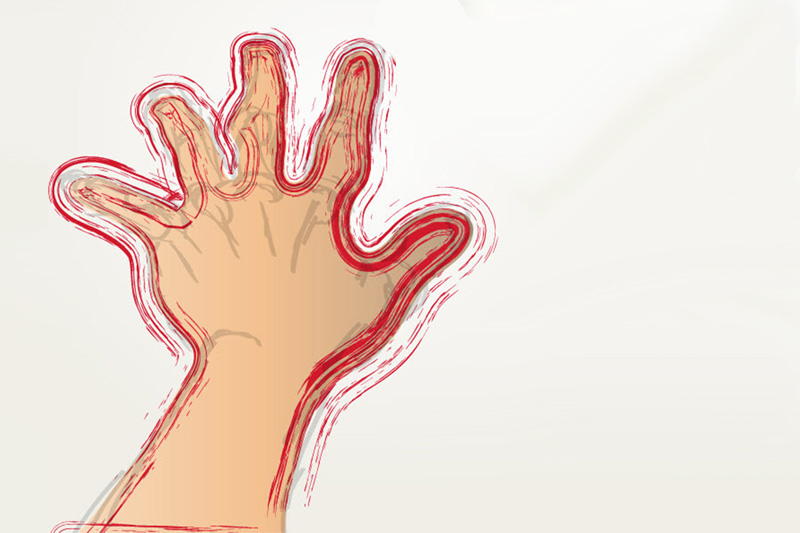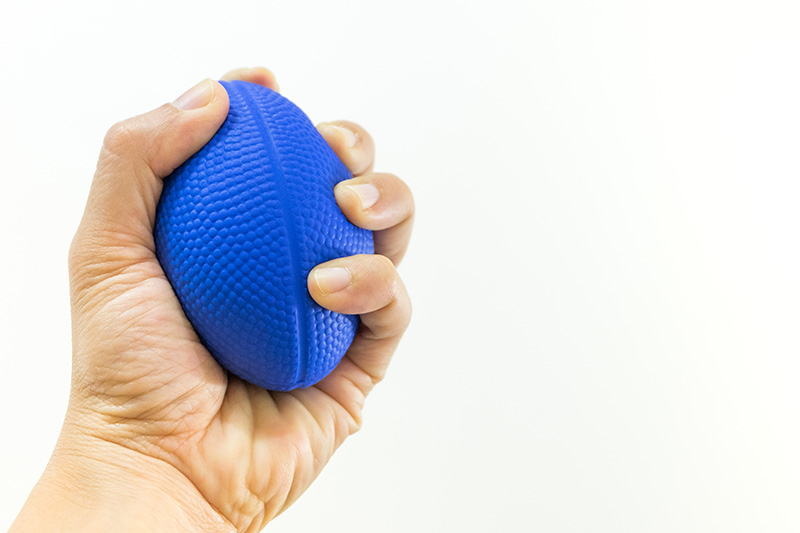Shaky hands are a very common problem affecting adults.
The most common cause of shaking hands is a condition called essential tremor, which occurs due to a disruption in normal brain function of the cerebellum. Essential tremor tends to run in families.
Other common causes of shaky hands include:
- Medical conditions, such as overactive thyroid, cerebellar disorders and
- Huntington’s disease.
- Medication side effects. In particular, some asthma medications, some antidepressants, lithium and some tranquillizers can cause shakiness if you stop taking them suddenly.
- Caffeine overdose, which can affect the nervous system.
- Low blood sugar, which causes shakiness because the nerves and muscles are deprived of fuel. Low blood sugar can also occur after excessive exercise.
- Withdrawal from alcohol or other substances on which your body has become dependent.
- Certain nutritional deficiencies.
- Stress, anxiety and nervousness that triggers an episode of shaky hands.
- Though not a life-threatening problem, shaky hands can make daily tasks difficult. If the problem becomes severe, one can have difficulty holding a cup or glass without spilling, eating normally, shaving and writing legibly.

It is important to take this problem seriously, as it can be an early warning sign of some neurological and degenerative conditions.
Before trying a treatment option, it is important to determine the cause of shaky hands. If the problem is due to an underlying medical condition, treating that condition may reduce or eliminate the tremors.
Some simply lifestyle changes and home remedies can also help improve your symptoms.
Here are some of the ways to treat shaky hands.
Do Hand Exercises

Hand exercises can strengthen your hands and prevent or reduce the severity of shaky hands.
- Put a stress ball in the palm of your hand.
- Squeeze it as tightly as you can.
- Keep this position for about 5 seconds, then slowly relax.
- Repeat 10 times.
- Do this exercise a few times each day.
- Along with hand exercises, incorporate yoga in your life. Yoga is effective in reducing stress and helping you sleep better. Stress and poor sleep are two factors that can trigger shaky hands.
Spend between 10 and 15 minutes per day doing yoga to notice a difference in your health.
Eat a Diet Rich in Omega-3 Fatty Acids

Omega-3 fatty acids are highly beneficial for the nervous system. These fatty acids lend a protective coating to the nerves’ myelin, which is important for preserving the health of neurons and in eliminating inflammation. Even mild inflammation can worsen the condition of people suffering from shaky hands.
Include fish oil and cod liver in your diet to get a good dose of omega-3 fatty acids. Also, eat cold-water fish, such as salmon, tuna and sardines.
People following a vegetarian diet can get omega-3 fatty acids from flaxseed, flaxseed oil, pumpkin seeds and walnuts.
Eat Magnesium-Rich Foods

Electrolytes like magnesium aid in transmitting electrical impulses from nerves to muscles. Hence, when the body lacks this important mineral, it may cause muscle spasms that can lead to shaky hands and tremors.
Include magnesium-rich foods like sesame seeds, beans, nuts and seeds, and leafy green vegetables in your diet.
Taking a magnesium supplement can also correct a deficiency of this important mineral. Consult your doctor first.
Control Your Stress Level

Stress is one of the main or contributing factors behind shaky hands.
In fact, stress, anxiety and nervousness can trigger episodes of shaky hands. Hence, you should try to relax and reduce stress and tension in your life, as much as you can.
To reduce stress, meditation is one of the best options that you should try. Meditation brings clarity to your mind and relaxes the nerves.
Deep breathing is another good technique to fight stress. Just 10 minutes of deep breathing through your diaphragm can greatly benefit your nervous system and induce relaxation.
Avoid Caffeine

If you suffer from shaky hands, it’s time to cut your caffeine intake to a minimum or eliminate it completely.
High caffeine intake can stimulate the central nervous system, and it can trigger episodes of shaky hands. Along with shaky hands, high caffeine intake may also lead to headaches, dizziness, anxiety and serious heart palpitations, which can make it difficult for you to carry out daily activities with ease.
Not just coffee, you must also avoid all caffeine-containing drinks and foods.


